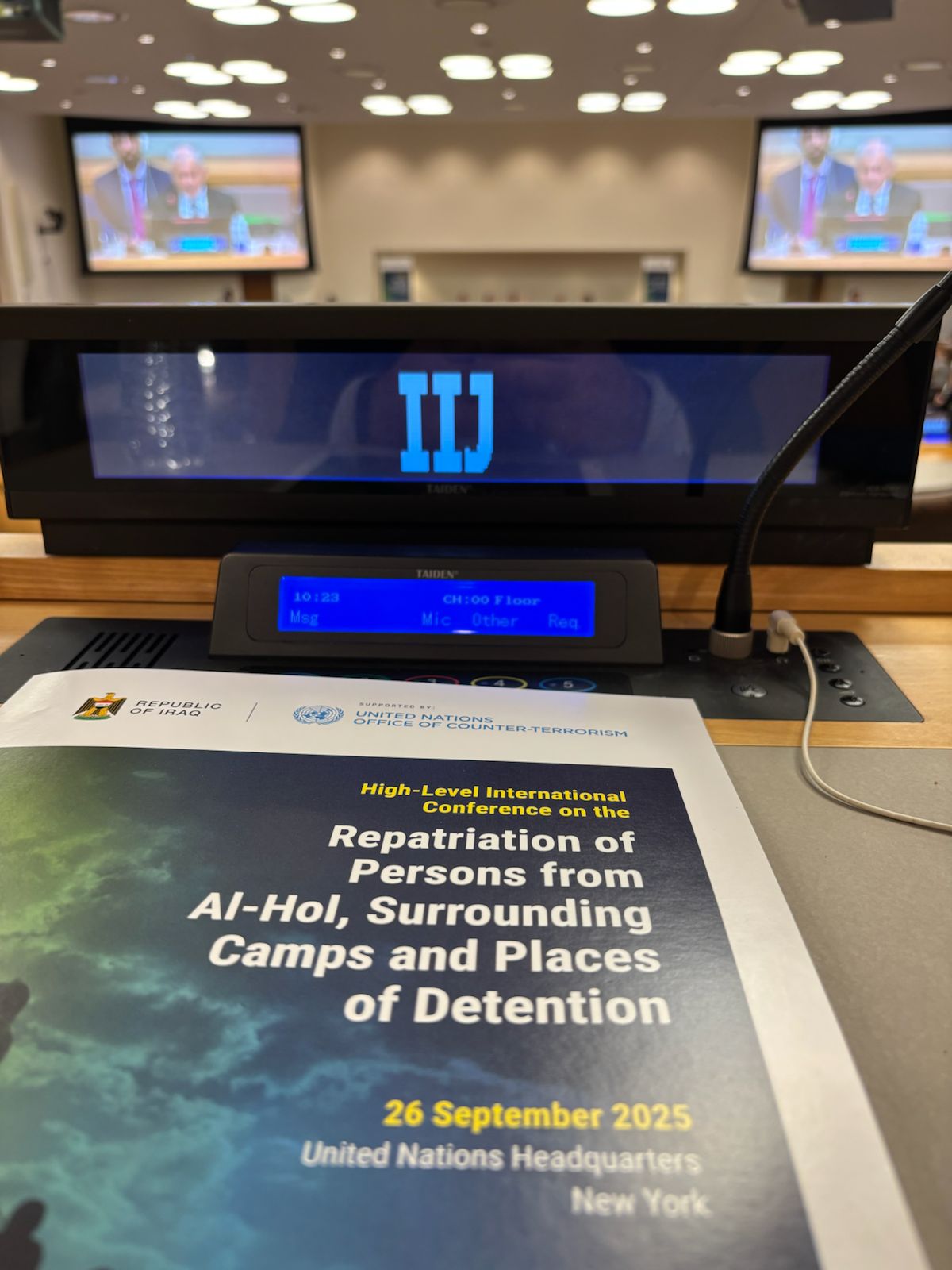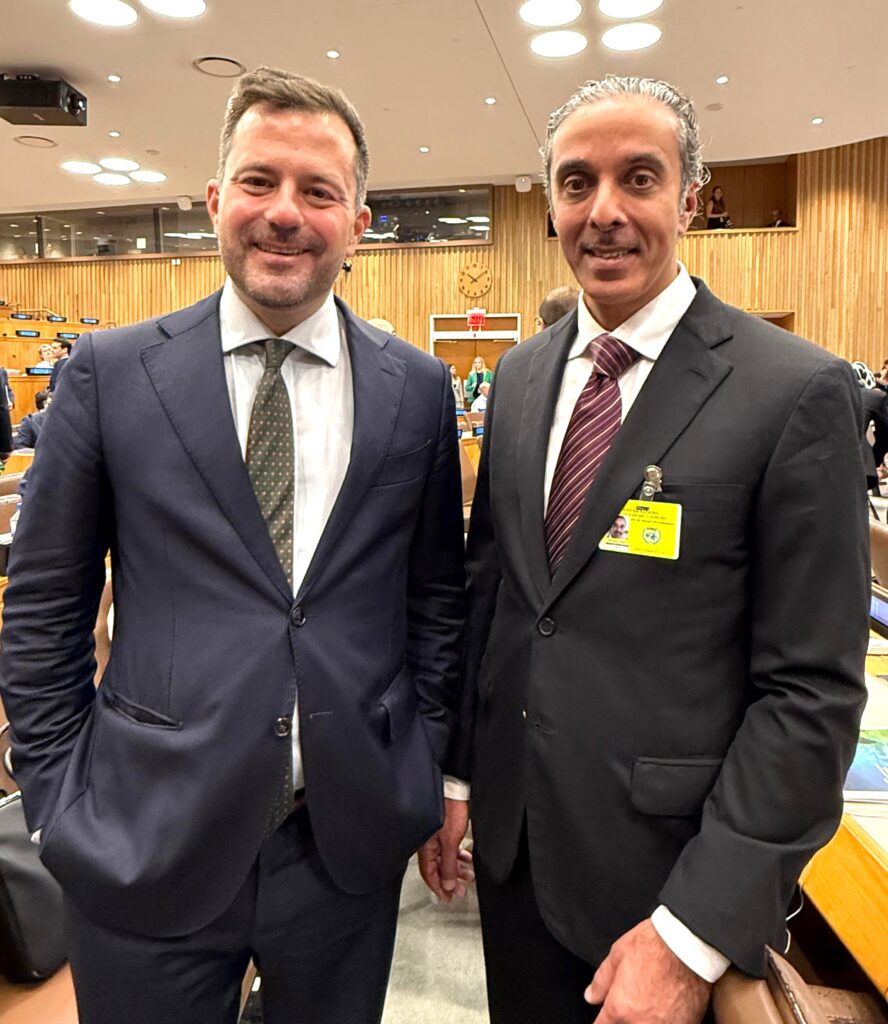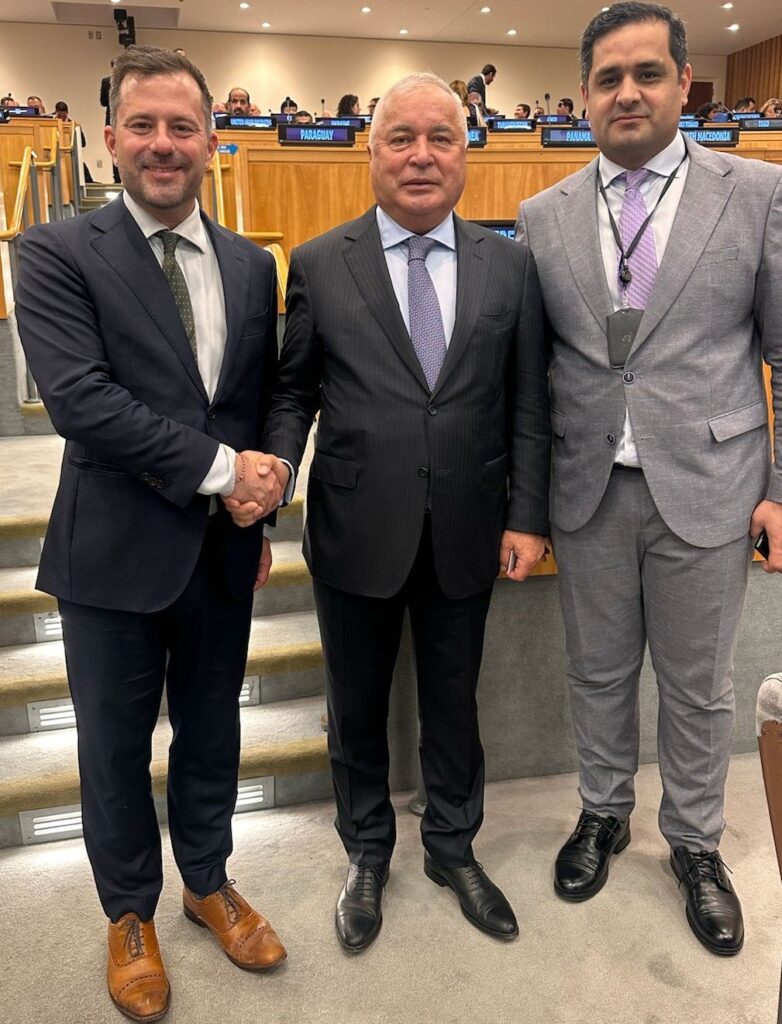
On the margins of the 80th session of the United Nations General Assembly, in New York City, Executive Secretary Steven Hill had the honour of participating in the High-Level International Conference on the Repatriation of Persons from Al-Hol, Surrounding Camps, and Places of Detention.
Organised by the Government of the Republic of Iraq with the support of the United Nations Office of Counter-Terrorism (UNOCT), the conference brought together ministers and leading experts to address the repatriation, prosecution, rehabilitation, and reintegration (PRR) of individuals in northeast Syria. The opening session was chaired by H.E. Mr. Abdul Latif Rashid, President of the Republic of Iraq, followed by a Ministerial Session titled “Leveraging Multilateralism for Repatriation, and Prosecution, Rehabilitation and Reintegration,” chaired by H.E. Mr. Fuad Hussein, Deputy Prime Minister and Minister of Foreign Affairs for the Republic of Iraq.

The event served as a platform to strengthen cooperation among regional and international organisations, renew global engagement on safe, dignified, and rights-respecting repatriation, and address both security and humanitarian challenges. Participants shared national experiences and explored new avenues for enhancing multilateral collaboration. Mr. Hill also met with several IIJ partners attending the conference, including, IIJ’s Board Member, H.E. Ambassador Hamad AlMashaan of Kuwait, H.E. Ambassador Zubaydullo Zubaydov of Tajikistan to Kuwait, and Mr. Olivier Caron, the French Ambassador for Counter-Terrorism. Members of the IIJ’s Governing Board of Administrators (GBA) also took part in the conference, namely the European Union, Morocco, and Türkiye.

--
Excellencies, distinguished colleagues,
It is an honour to join you at this High-Level International Conference on the Repatriation of Persons from Al-Hol, Surrounding Camps and Places of Detention. I thank the Government of Iraq and the United Nations Office of Counter-Terrorism for convening this important meeting.
The International Institute for Justice and the Rule of Law was created to strengthen criminal justice responses to terrorism that are both effective and consistent with the rule of law and human rights. Since 2014, we have worked with more than 10,000 legal practitioners worldwide - prosecutors, judges, investigators - with a particular focus on prosecution and accountability. This has been possible thanks to the strong support of our Member States and other partners.
Iraq has shown remarkable leadership in advancing repatriation, and it has also taken important steps to ensure its justice system can respond effectively. The IIJ is proud to support these efforts. Our work strengthens the capacities of Iraqi practitioners - and practitioners elsewhere in the Middle East, in Africa, in Southeast Asia, and beyond - to manage returnees’ case, to obtain and use battlefield evidence, and to cooperate across borders. These initiatives aim to ensure that investigations and prosecutions are effective, comply with fundamental rights, and prevent future terrorist activity that would threaten security both regionally and internationally.
The IIJ’s role is to reinforce practitioners’ ability to bring terrorist offenders to justice. We complement this by working with partners such as GCERF and Hedayah, who lead on rehabilitation and reintegration, ensuring that all aspects of returnees’ cases are addressed in a coordinated way. And we support governments in making systemic changes that upgrade their counter-terrorism practices in a sustainable way. For example, through our EU-funded Counter-Terrorism Platform for Human Rights Engagement, we are assisting the Government of Iraq in developing the Iraqi National Counter-Terrorism Strategy for 2026-2030.
Excellencies, this conference underscores that repatriation cannot succeed without strong and fair justice mechanisms. The IIJ stands ready to deepen its cooperation with Iraq, with regional partners, and with the United Nations system to ensure that repatriation efforts deliver both accountability and security.
--
